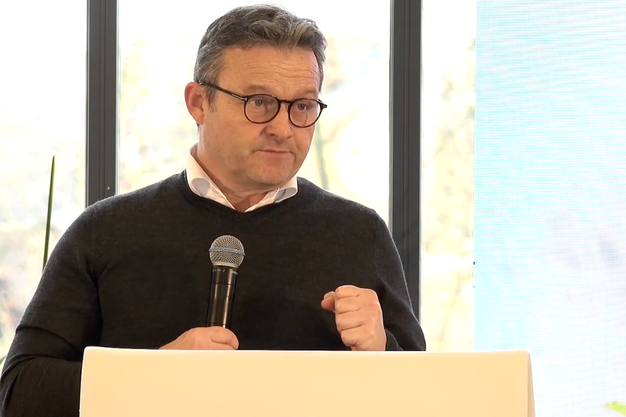Education, research awards empower UCLA members to expand university’s global reach – Newsroom | UCLA

UCLA Grant Initiative Advances Sustainable Development Goals Through Global Engagement
Introduction
- In 2023, the University of California, Los Angeles (UCLA) established the expansion of its global presence as a key strategic objective, aligning with Sustainable Development Goal 4 (Quality Education) and SDG 17 (Partnerships for the Goals).
- In support of this objective, the UCLA Global Advisors Council has allocated nearly $500,000 in grants to 26 individuals across the university, funding projects that advance multiple SDGs through education and research.
Award Categories and Alignment with SDGs
- Global Education Awards for Internationalizing Curriculum: Sixteen faculty and academic professionals received awards ranging from $5,000 to $20,000. This initiative aims to integrate global perspectives into university courses and programs, directly contributing to SDG 4 (Quality Education) by enhancing inclusive and equitable learning opportunities for all students.
- Global Research Awards: Ten recipients were awarded grants of up to $20,000 to expand research projects with an international scope. This program fosters cross-border collaboration on critical global issues, embodying the principles of SDG 17 (Partnerships for the Goals).
Analysis of Funded Projects and their Contribution to Sustainable Development
-
Black Radicalism and Intellectual Thought Across the Diaspora
- This new course directly addresses SDG 10 (Reduced Inequalities) and SDG 16 (Peace, Justice and Strong Institutions). It examines transnational responses to colonialism, racism, and economic exploitation, promoting a deeper understanding of social justice and challenging discriminatory systems.
-
Developing Universitywide Guidance for Globally Integrated Classrooms
- This project enhances SDG 4 (Quality Education) by creating more accessible and inclusive global learning experiences, removing barriers to international education. The collaboration with the Congo Basin Institute links the initiative to environmental goals such as SDG 13 (Climate Action) and SDG 15 (Life on Land), while exemplifying SDG 17 (Partnerships for the Goals).
-
Inclusion of Global Voices in Introductory Chemistry Classrooms
- This course revision promotes SDG 10 (Reduced Inequalities) by incorporating the scientific contributions of individuals from low and middle-income countries. It fosters a more inclusive scientific perspective, supporting targets within SDG 4 (Quality Education) and SDG 5 (Gender Equality) by broadening the conceptualization of who participates in science.
-
Spanish Language Acquisition in Children: A Transnational Research Collaboration
- This research, in partnership with Universidad Nacional Autónoma de México (UNAM), advances SDG 4 (Quality Education) by addressing critical knowledge gaps in linguistics. The focus on a globally significant language supports SDG 10 (Reduced Inequalities) by improving understanding relevant to bilingual and migrant communities, while the collaboration itself is a model for SDG 17 (Partnerships for the Goals).
-
Resonate 2026
- This project globalizes an open-access music score initiative, contributing to SDG 10 (Reduced Inequalities) by removing financial barriers and diversifying the voices of represented composers. By making scores more accessible for global research and performance, it also supports inclusive and equitable access to cultural education, a key aspect of SDG 4 (Quality Education).
Analysis of SDGs, Targets, and Indicators
1. Which SDGs are addressed or connected to the issues highlighted in the article?
- SDG 4: Quality Education: The article’s central theme is UCLA’s initiative to enhance its educational offerings by internationalizing the curriculum. The Global Education Awards directly support faculty in revising existing courses, designing new ones, and creating programs that incorporate global perspectives, thereby improving the quality and relevance of education for students.
- SDG 10: Reduced Inequalities: Several funded projects explicitly aim to reduce inequalities. For instance, the course on “Black Radicalism” addresses the history of challenging racism and discrimination. The project to revise the introductory chemistry course seeks to counter the exclusion of scientists from low and middle-income countries. The “Resonate 2026” project aims to remove financial barriers that limit the diversity of voices in music composition, promoting inclusivity.
- SDG 17: Partnerships for the Goals: The article highlights UCLA’s strategic goal of expanding its global reach, which is being achieved through partnerships. The Global Research Awards foster international collaborations, such as the partnership between UCLA and the Universidad Nacional Autónoma de México (UNAM). The entire initiative, funded by the UCLA Global Advisors Council, exemplifies a multi-stakeholder partnership mobilizing resources to achieve global objectives.
2. What specific targets under those SDGs can be identified based on the article’s content?
- Target 4.7 (under SDG 4): “By 2030, ensure that all learners acquire the knowledge and skills needed to promote sustainable development, including, among others, through education for… global citizenship and appreciation of cultural diversity…” The projects funded by the Global Education Awards are designed to do exactly this by incorporating global perspectives, examining transnational diasporas, and exploring diverse cultural and intellectual contributions to various fields.
- Target 10.2 (under SDG 10): “By 2030, empower and promote the social… inclusion of all, irrespective of… race, ethnicity, origin… or other status.” The projects focusing on Black intellectual thought, including scientists from the Global South, and making music composition more accessible for underrepresented composers directly contribute to the academic and social inclusion of marginalized groups.
- Target 17.6 (under SDG 17): “Enhance North-South… regional and international cooperation on and access to science, technology and innovation and enhance knowledge sharing…” The research collaboration between UCLA in the U.S. (North) and UNAM in Mexico (South) to study Spanish language acquisition is a direct example of this target in action.
- Target 17.16 (under SDG 17): “Enhance the global partnership for sustainable development, complemented by multi-stakeholder partnerships that mobilize and share knowledge, expertise… and financial resources…” The UCLA Global Advisors Council’s initiative to award nearly $500,000 in grants represents a partnership that mobilizes financial resources and academic expertise within the university to foster global research and education.
3. Are there any indicators mentioned or implied in the article that can be used to measure progress towards the identified targets?
- Financial Commitment: The article states that “nearly $500,000 in grants” were awarded. This amount serves as a direct financial indicator of the resources mobilized for these global initiatives.
- Number of Projects and Individuals Supported: The article mentions “26 individuals” and “16 faculty, academic and non-ladder faculty professionals” received awards. This number is a quantitative indicator of the scale of the initiative and its reach within the university.
- Curriculum Development: A key indicator is the number of courses and programs being developed or revised. The 16 Global Education Awards were given specifically “to revise a current course; design a new course; or design a new program, concentration or track that incorporates global perspectives.”
- Establishment of International Partnerships: The creation of new transnational collaborations, such as the research partnership between UCLA and UNAM, is a clear indicator of progress in building global partnerships.
- Creation of Inclusive Resources: The development of tangible outputs like the “universitywide guidance and tools for globally integrated classrooms” and the expansion of the “Resonate” open-access musical score project are measurable indicators of progress toward creating more inclusive and globalized educational resources.
4. SDGs, Targets, and Indicators Table
| SDGs | Targets | Indicators |
|---|---|---|
| SDG 4: Quality Education | 4.7: Ensure all learners acquire knowledge and skills for sustainable development and global citizenship. |
|
| SDG 10: Reduced Inequalities | 10.2: Empower and promote the social inclusion of all, irrespective of race, ethnicity, or origin. |
|
| SDG 17: Partnerships for the Goals |
17.6: Enhance North-South cooperation on science and knowledge sharing.
17.16: Enhance the global partnership for sustainable development through multi-stakeholder partnerships. |
|
Source: newsroom.ucla.edu
What is Your Reaction?
 Like
0
Like
0
 Dislike
0
Dislike
0
 Love
0
Love
0
 Funny
0
Funny
0
 Angry
0
Angry
0
 Sad
0
Sad
0
 Wow
0
Wow
0














































































